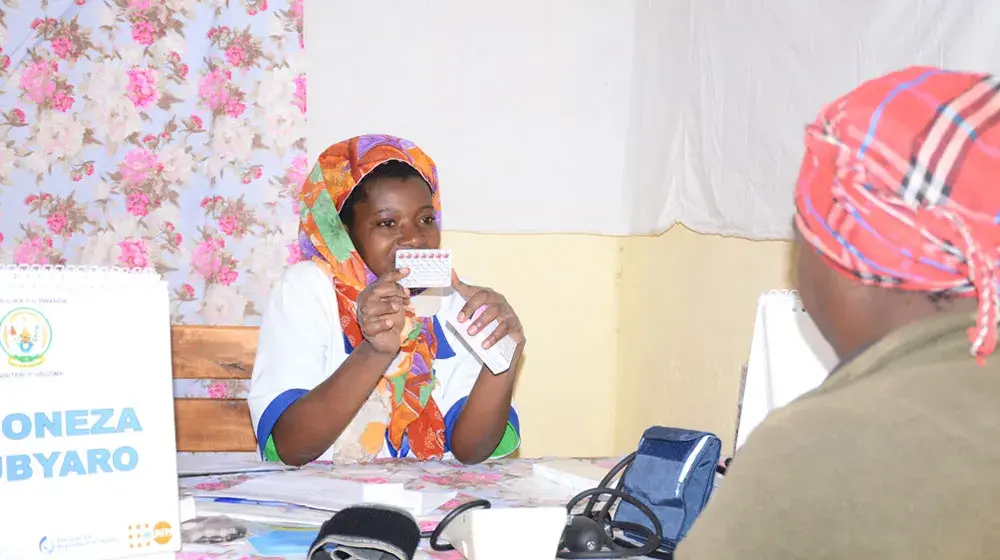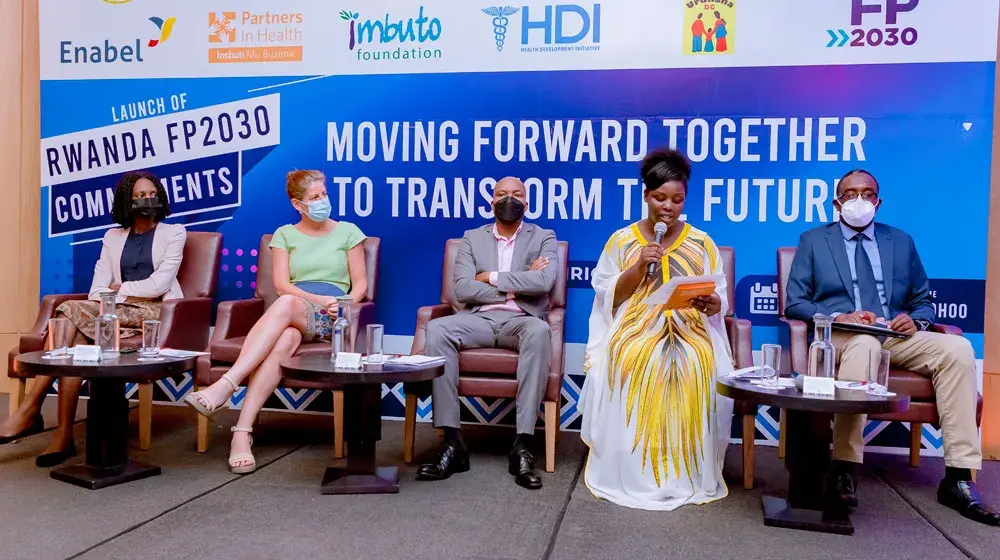KIGALI, 26 September 2020 – Women have a fundamental right to decide if and when to have children, yet more than 222 million worldwide are unable to access modern contraception when they need it. And history has proven that even well-intentioned efforts to provide women with increased access to contraception can result in coercive practices if women’s rights and empowerment are not at the center of such policies and programs. If women are to control their fertility, health, and lives, access to a full range of modern, woman-controlled contraceptives is essential.
Today, Rwanda joins other countries in celebrating the World Contraception Day under the theme “Contraception is a human right, it is your choice!”. In her opening remarks at the celebration event, the UNFPA Rwanda Deputy Representative, Ms Mercy Mungai stated:
" As we commemorate the World Contraception Day, UNFPA and the One UN family in Rwanda, take this opportunity to commend the Governement of Rwanda and the Ministry of Health in particular for their leadership and strong commitments to support the Sexual and Reproductive Health including Family Planning.”
" This year’s theme underlines the importance of contraception as a Human Right- be it for individual, for couples, for families or for communities. Pregnancy by choice ,not by chance should become everyone’s responsibility and agenda, not just for women but also for the men and the youth.” She added
The Government of Rwanda prioritizes interventions that promote equitable access, address the unmet needs for familyT planning of women particularly of youth and adolescents; and accelerate demand for and increase uptake of family planning services. Rwanda committed to increase successful demand creation for family planning and increase total demand for contraception for married women from 72% to 82% by 2020. The Government aimed to focus on voluntary family planning that can improve the living conditions of Rwandans through universal access to health and basic education.
This year, The Ministry of Health through Rwanda Biomedical Centre (RBC), in partnership with The United Nations Sexual and Reproductive Health Agency: UNFPA, Ihorere Munyarwanda Organization (IMRO) and other partners, calls upon all leaders, partners and stakeholders, to improve awareness of all contraceptive methods available and enable women and young people to make informed choices on their sexual and reproductive health.
“The family planning is defined by the government of Rwanda as a way of giving birth to a number of children that is within the capacity of each household and the Country to support, but also as a central component of development. It is a national priority”, a vehicle to better health, to reduce maternal mortality and decrease poverty”: Dr Sabin Nsanzimana, RBC Director General.
In 2019, The Ministry of Health in partnership with UNFPA, developed the Business Case for Family Planning in Rwanda in order to provide an evidence base on the returns on investment in Family Planning. The Business Case demonstrates the returns Rwanda will get from investing in Family Planning; on average, between 2015 and 2050, every US$1 invested in Family Planning could yield US$112 in returns or savings across many sectors.
“Pregnancy by choice, not by chance. When a woman can plan her family, she can plan her life. She can pursue more education, seek and keep better jobs, and contribute more to her family, her nation and to global prosperity. As she becomes better-off financially, her children receive better education, and the benefits carry over well into future generations.” said Mark Bryan Schreiner, UNFPA Representative to Rwanda.
There is a growing need to educate more Rwandans about planning their pregnancies and families and to give them access to methods that they deem most suitable for their needs. Access to reproductive health education paves the way for healthier Rwandan families and a stronger nation. Universal access to contraception should be provided as part of universal health coverage and as an essential component of sexual and reproductive healthcare.
“IMRO as national CSO/NGO in consortium of others CSOs ( RNGOF on HIV/AIDS,HDI, and GLIHD) will continue to support the Government's efforts in encouraging everyone, adults and youth to use contraceptives for spacing and limiting their births and avoiding unintended pregnancies among all women and girls." stated Mr. Mwananawe Aimable, IMRO National coordinator.
This World Contraception Day reiterates the importance of giving couples the right to decide for themselves the size of their families and the spacing of pregnancies, which is essential to securing the health and well-being of women and their families, while supporting the country's sustainable development.
Contraception is a human right, and it’s everyone’s responsibility to let the community know the benefits of using contraceptives!




